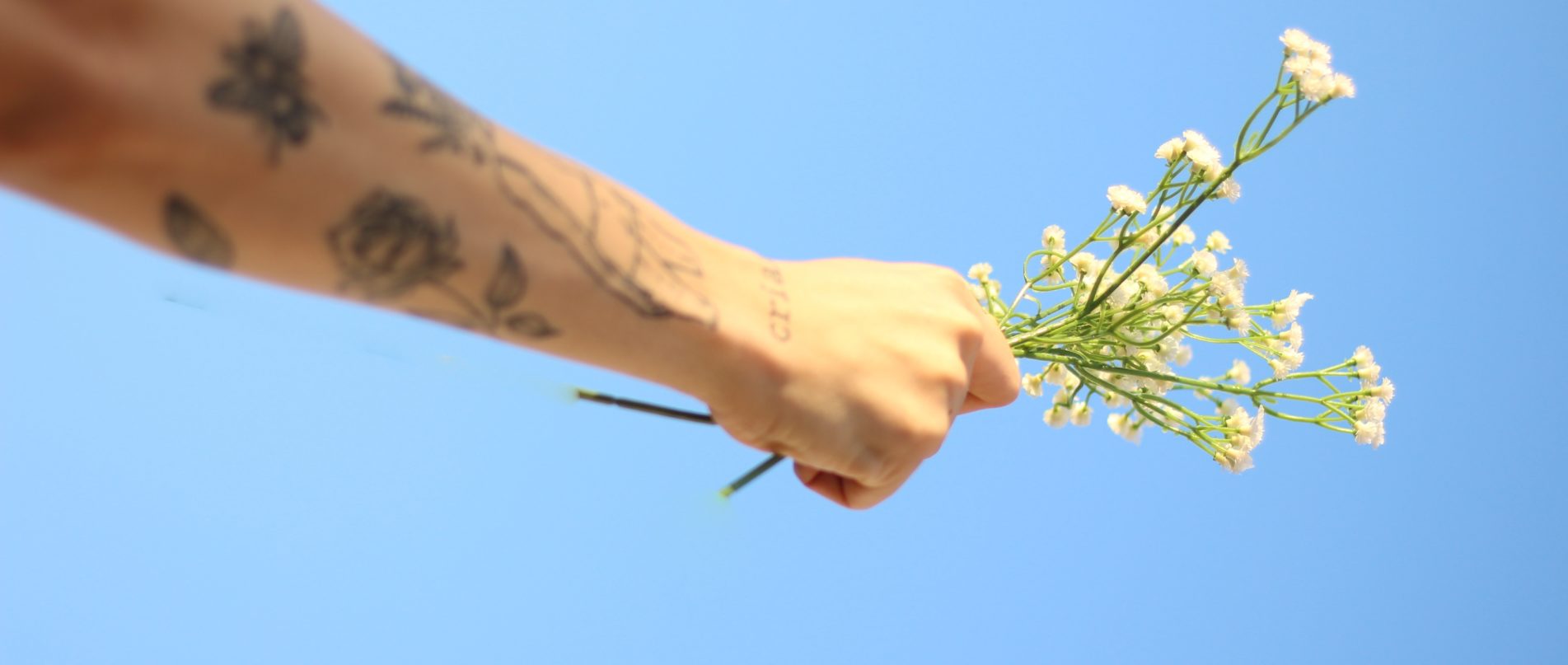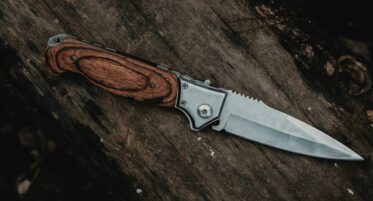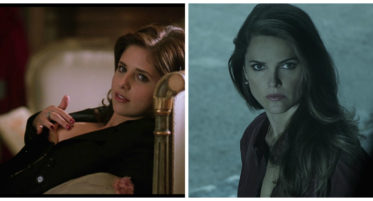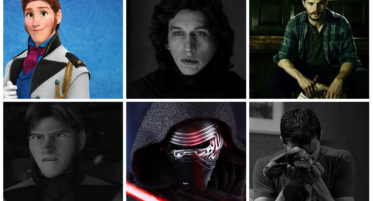
Prompt Images
“What do those stand for?” Joey looked up from the brown stream of coffee flowing into his cup to the waiter, Jameson, tipping the glass and chrome coffee pot above it.
This is where they frequently had their conversations, over a cup of coffee when he popped into the diner on his way home from the brokerage he worked at down the street. Every day for the past two years, he walked through the door with a ring of the bell above it, grabbed a menu from the always-vacant hostess stand, and seated himself in the booth seven away. Every day, Jameson wore the same variation of her Coffee Depot & Diner shirt, pink, yellow, maroon, jade. Her chestnut waves were either pulled into a bun at the crown of her neck, or cascading down her shoulders, both doing nothing to lessen the power of her smile or the tanned freckles on her cheeks. Every day, they would banter as she poured him a cup or brought him a piece of Danish or just passed the time with one another.
“What are those you’re talking about?” he asked, although from the flick of Jameson’s eyes down to his wrist, Joey knew the answer.
“The tattoos,” she said, resting the pot’s steel bottom against the lacquered tabletop with a clink. “If you don’t mind me asking.”
Joey’s own eyes went to the markings.
Most days, no one would’ve seen them. At his job, button downs were a must, and even if they weren’t, covering the designs inked into his skin would’ve been; the brokerage was strict, with little room for personal flairs amidst all the structure. That was the reason why he stayed there, craving to have it in at least one part of his life.
More often than not, Joey kept the rule outside of work, too, deviating mostly on hot days when after the brokerage had closed, he needed to relax and roll up his sleeves, liking to think if he could roll them away, he could do the same to his feelings. Today was one of those days, the sun beating down on him as he walked, converting his shirt into a hotbox. He hadn’t thought about the questions, although he should’ve considered that people always ended up asking them.
Why so many? Why do you do that to your body? Are you trying to make a sleeve? Did you just make them up?
The longer he had them, the more he tried to avoid getting into the details, and, depending on the asker’s tone, would give them the verbal equivalent of a middle finger.
It wasn’t their business, not their story to know.
Jameson, though. He couldn’t do that with Jameson. Because, with her, he knew it wasn’t to be nosy. Then she would’ve asked the first time he had done it, or the fifth. This, he liked to believe, was rooted in genuine interest, as he also liked to believe, all their conversations were. He noticed it right away, when, dogged by a nagging migraine and a cold in his bones that only a hot, caffeinated cup could cure, he sat down at a table, and like she knew what he needed, she came right over with a coffee pot and filled his cup, as she asked him if it was his first time there in this place that was hers. Within five minutes of talking to her and drinking liquified warmth, he knew it would be far from the last.
Joey dragged his hand over the prickly black stubble that was beginning to bud on his cheeks. “Memories,” he said, and his voice dropped 10 bars of volume. “People I knew.”
“Oh,” she said, no longer trying to look like she wasn’t staring at his arms. Her eyes traced the shapes, going down one inch of skin before going up another. “So it’s like your own personal scrapbook you get to carry with you all the time?”
“Yeah,” he nodded. A few years back, he was listening to an interview with a journalist, he thought it was Anderson Cooper, who said that his grief made him wish he had a scar that he could bare to the whole world so they would know he had endured tragedy. After all, something didn’t have to be physical to leave a mark. After years of loss and leaving, it resonated with Joey.
He wanted people to know that behind the smile and beneath the button down was someone who was hurting.
To know that he was surviving, but it wasn’t without daily, sometimes hourly, struggle.
However, when he ended up getting them and people began asking questions, he realized that like most things, there were days he wanted to talk about it and days he didn’t. That’s when he began integrating long sleeves more and more into his everyday wardrobe and believing that knowing he was changed mattered just as much, if not more, than others knowing it.
“That’s really cool, actually,” Jameson said. “Do you mind if I ask you about a couple?”
Another tally in her favor. People didn’t usually ask if they could know more—they just went for it. “Sure.”
She slid onto the brown booth seat opposite him. “The stopwatch, what’s that about?” On the swell of his wrist, an artist in Raleigh had inked a 1980s’ style watch, rectangular, chunky, electronic face, the numbers looking like they belonged more on a calculator than a watch.
“It’s for my mom. She liked to run, race against herself.” For all the memories that have discolored and faded over the years, Joey remembered vividly his mom coming in each morning from a jog, hair sweaty, chest heaving. Her face would break into a smile as she told him and his dad about her new lower time or she would collapse into their La-Z-Boy as she told them about how close she was to catching it.
Then, one day, when Joey was eight, a car accident took away her ability to run, and a few days later, her ability to live with it. Three years later, stomach cancer took his dad’s too. His place was right below hers on Joey’s wrist, represented by a set of dice, for the card games he played and his belief in a luck he never quite had. Like he had with his mom, Joey held his dad’s hand until he couldn’t hold back, until the hazel eyes that matched his closed while his stayed open to see a life without them both.
“It was one of my favorite things about her,” he said.
When his gaze lifted to hers, Joey could tell that she had caught the past tense, sympathy in her expression. In the past, when she had talked about her family, he had brushed over his, making one-off comments about the past—family trips, meals, pranks gone awry—but never mentioning that the past was the only place his family existed.
“What’s the toucan?” Her finger aims at the center of his forearm and the black toucan with a colorful beak there.
“That one’s for my grandpa. He loved birds, especially tropical ones. Well that, and when we lived together, we would have Froot Loops every morning.” Even into high school, when getting out of bed and out the door on time was always a crazy sprint, Joey never skipped breakfast with Grandpa Ian. It was his grounding force, his stabilizing moment, and usually one of levity, considering his grandpa had leveled up from dad to granddad jokes.
“Is there a reason that’s the only one with color?” she asked.
Unlike every other tattoo on his arm that was done in black, the toucan was a vibrant rainbow.
He nodded, and searched for the words. When he found them, they came quietly. “There was a time in my life where it felt like the world was pitch black, and he brought the light back. The color, too.” Grandpa Ian had flipped the switch, helping the glow return little by little. Joey owed his Mom and Dad his life, but he owed Grandpa Ian for keeping him alive. Grandpa Ian had told Joey he had done the same thing for him, giving him a reason to continue on when he thought he had lost it.
But, like with his parents. Joey had to say goodbye to his grandpa too soon. A massive heart attack struck him down as he mowed the front lawn. Joey was 19, away at school, when a police officer showed up at his door to let him know all he had left in the world was gone. The lights went out again.
“He sounds like a great guy,” Jameson said, matching his tone.
“He was,” he said, and cleared his throat before the memory choked him. Her fingers slid forward but didn’t point to another tattoo. Instead, they stayed a centimeter shy of his own. A ghost gesture of comfort, but comforting all the same.
He waited for her to ask another question, maybe the tennis ball that was a reminder of his dog, Rocco; or the wilting pot of flowers with one daisy standing tall, to symbolize his once-girlfriend, Margot, their mutual heartbreak, and their mutual survival in spite of it. Or the globe, a memory of his friends Gino and Mark, and the choices that had taken them miles away from one another.
Back when Joey had first gotten the tattoos, each one had felt like another piece of metal slotting into place in his armor. He had hurt because of each person, each pet on his arm, and he wondered if that was all relationships were good for in the end, inflicting pain. In that case, he needed to keep people at a distance and not get his heart involved more than it had to be.
He tried to talk himself out of that belief, telling himself that these people were also who had made his life good and the reason the lights went back on and he was still getting up and going to work and drinking coffee rather than withering away in the shadow of what could’ve been. Sometimes, that prevailed. Sometimes, the bitter voice won.
That night, a surprising voice was winning, one that said it wished for Jameson to keep asking the questions.
So for the first time in a long time, he could talk about them with someone other than himself. With someone who even if she didn’t know who they were, knew and cared about him. So, their greatness went further than his own memory.
“Any other ones you want to know about?” he said when he had finally summoned the bravery. Jameson’s lips sloped into a lopsided smile.
“You want me to?”
“If you want to. I know you have work, stuff to do,” he said. She owned the place after all. She had more to do than just sit with him and learn about the doodles on his arm and their sad origin stories.
“You’re—” Her cheeks flooded with red, and his own stretch with a smile he’s trying to keep from turning into a full-blown grin. “—I mean, they’re more interesting than what I have to do anyways.” She leaned her head over his arm, cocking it to the left. “What’s the story with the globe?”
He couldn’t help himself. He grinned, and started, “Well, you know those friends you have growing up, who lived on your street and you’d stay out late playing night games with?” She nodded. “That’s Mark and Gino to me.”



